How to master… shopping on Amazon
20 tips, tricks and hacks that’ll transform your online retail sprees
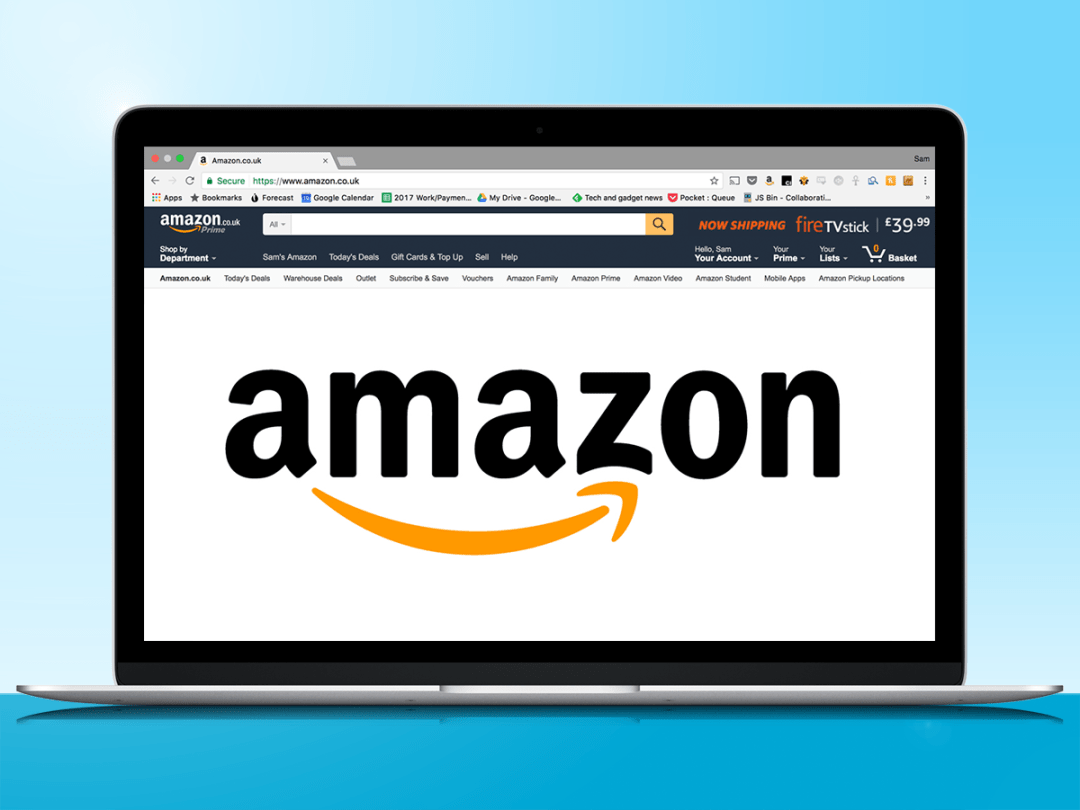
Love it for its bargains and convenience or loathe it for its all-consuming ubiquity, you can’t deny that Amazon has radically changed the way the world shops.
From its roots as an online bookshop to its present day position as purveyor of everything under the sun, Amazon has risen far and fast, so much so that even those unmoved by its business model likely use it at least a few times a year. It’s really, really hard to ignore a reliable online retail service – especially when late December rolls around and you realise you’ve got two days to buy approximately 87 Christmas presents. Plus wrapping paper.
We’ve already noted Amazon’s convenience and its competitive prices, but there are ways to make it better still. Want to shop smarter, and save-ier? We will train you. Read on, Grasshopper.
Jump to:
Money savers…
1) Bargain hunt with Daily Deals…
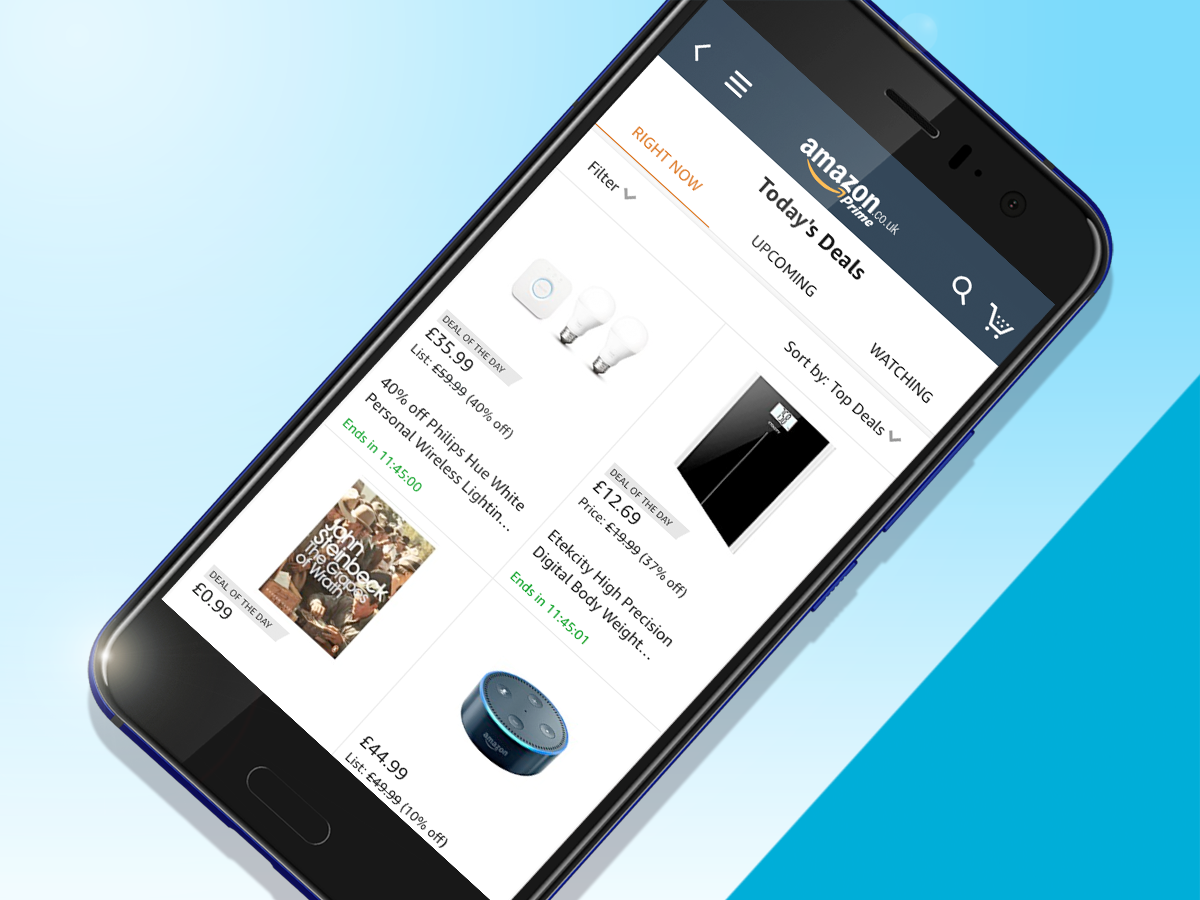
The first stop for bargain hounds without a clear idea of what they want but a fierce desire to make major savings should be Amazon’s Daily Deals section.
As the name suggests, these offers (which are spread across every department) are generally refreshed every 24 hours, meaning you only have a limited time to take advantage. Some deals don’t even stick around for the full day, expiring in a matter of hours of when a certain amount of stock is sold.
Daily Deals is something of a lucky dip of savings: you never know what might be in there, so don’t come in expecting to find something you need.
2) …And what’s in the Warehouse…
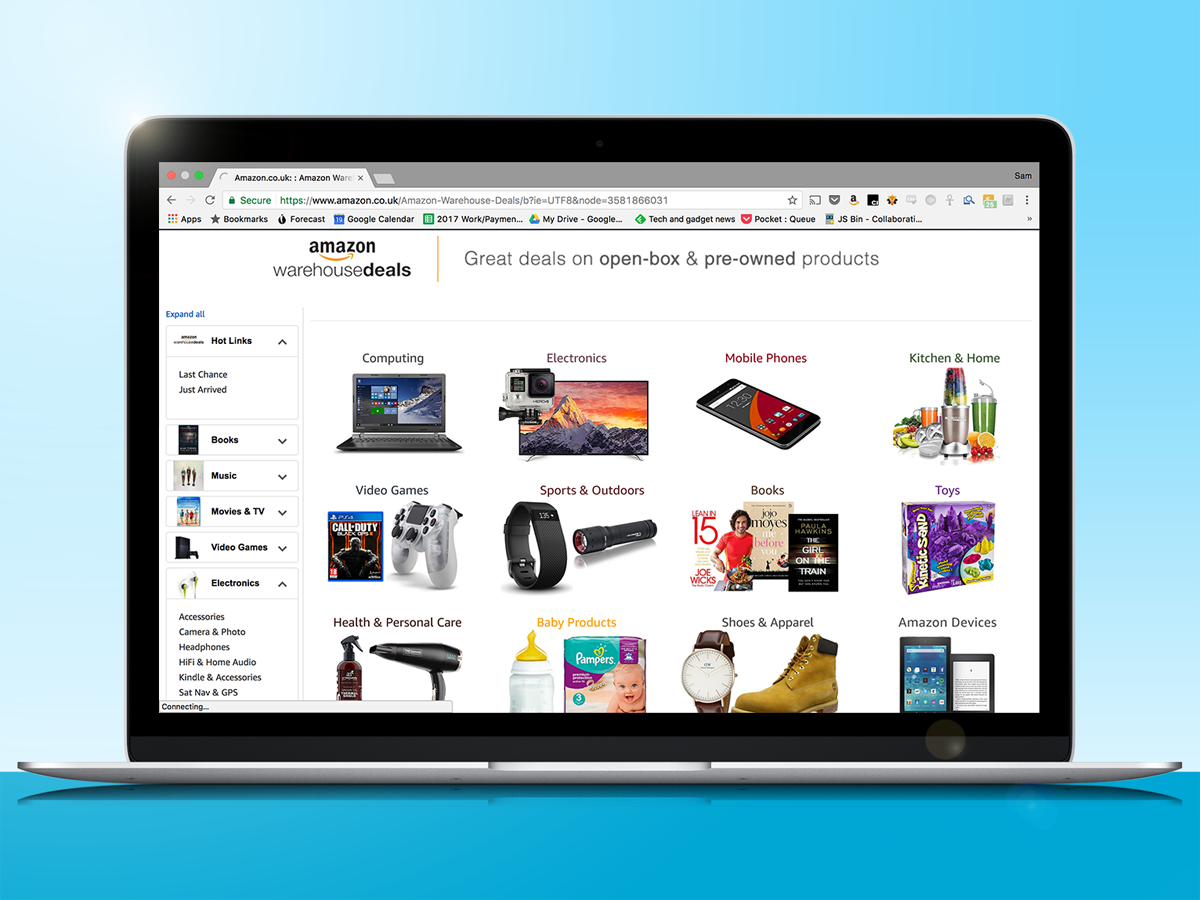
Warehouse Deals is where Amazon shifts refurbished, factory-damaged, returned and second-hand (aka “open-box and pre-owned”) products at low prices. All products are in “good condition”, thoroughly inspected/tested, and backed up with Amazon’s normal satisfaction guarantee, but fall short of Amazon’s standards for “new” and will likely lack a manufacturer’s warranty.
3) …And don’t forget the Outlet
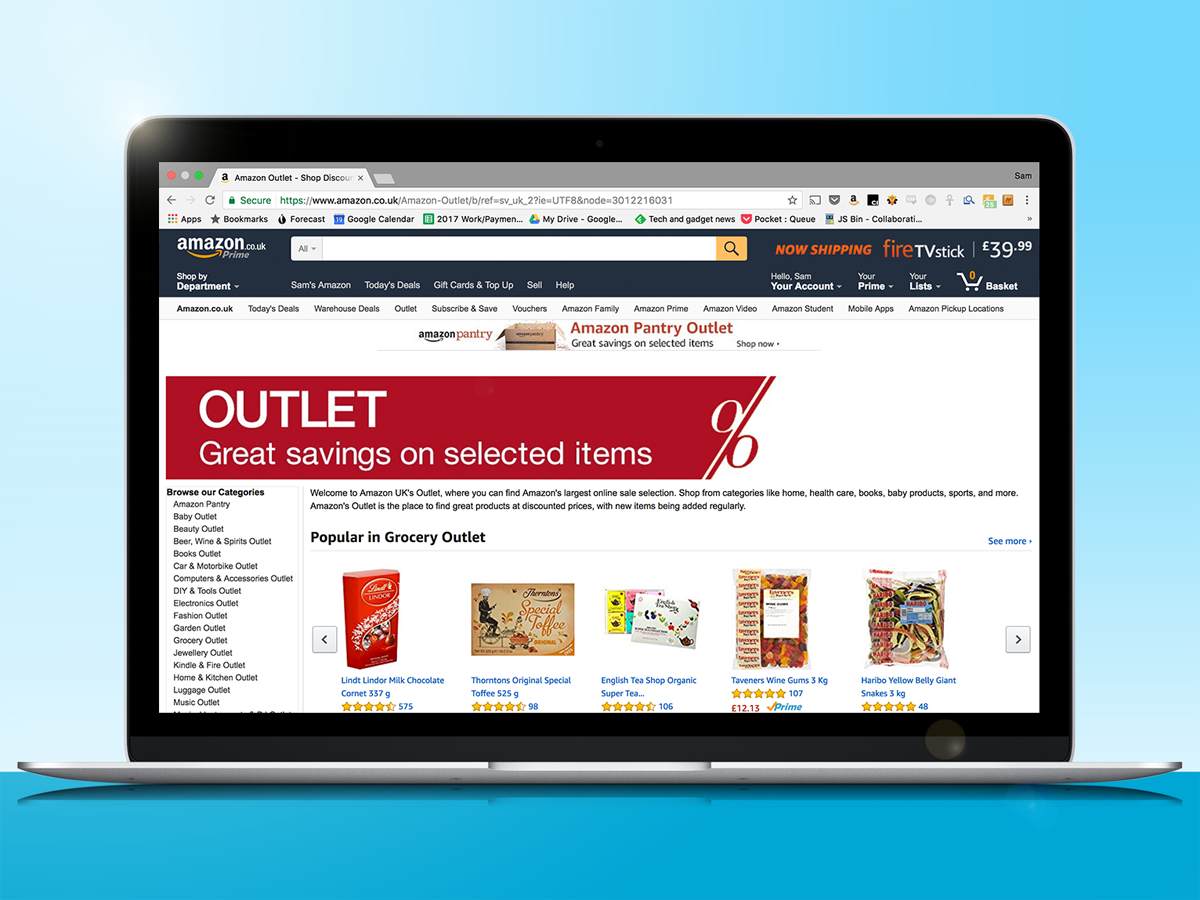
The third spot for finding heavily discounted products on Amazon is the Outlet. This is a straight-up offers/sales section with a full range of categories to comb through – including groceries, fashion, books and electronics.
4) Search for heavily-discounted specific products
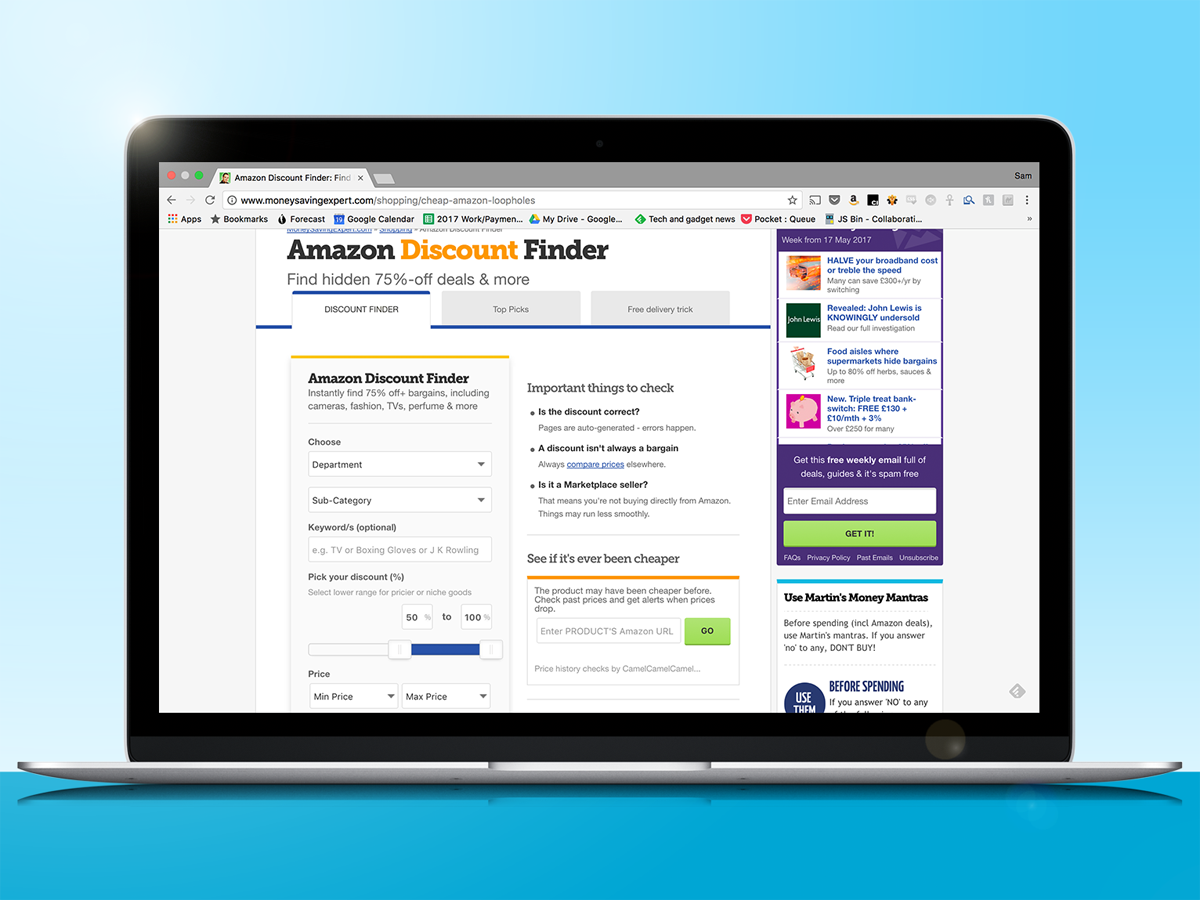
If you’re less of a browser and more of a “I know what I’m after” type, it’s well worth checking out Money Saving Expert’s Amazon Discount Finder tool, which will unearth deals and reductions you might struggle to find when using Amazon’s regular search box.
You can search by keyword and filter by department, category, discount percentage, and minimum and maximum price.
5) Check historic pricing data with the click of a mouse
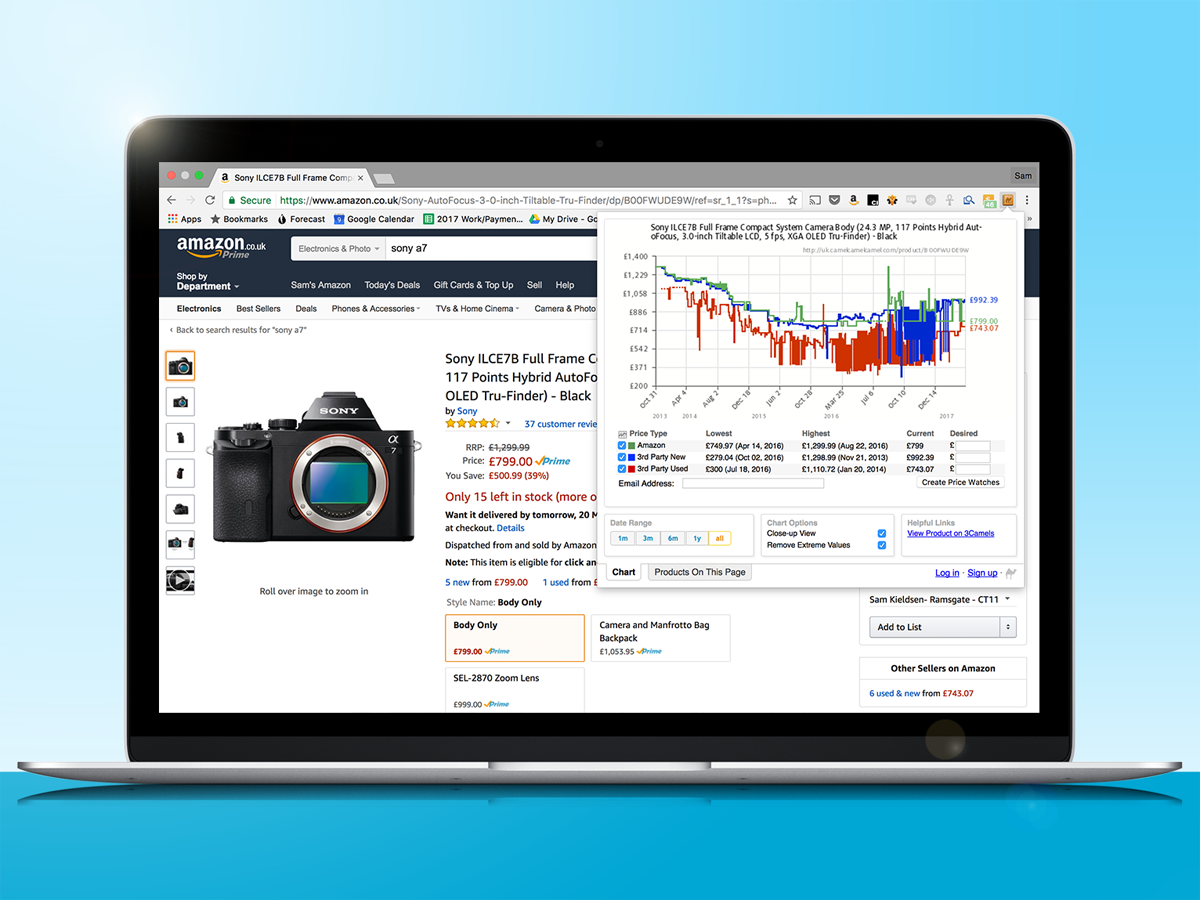
CamelCamelCamel keeps track of product pricing for online retailers including Amazon, and its web browser extension, the Camelizer, lets you bring up all the info on the product you’re currently viewing with a single click of your mouse, so you can make sure you don’t shell out the big bucks on something that’s likely to drop in price again soon.
You can even set up an alert on a particular product, so Camelizer will notify you when it drops below a certain price. Ker-ching!
6) Price just dropped? Ask Amazon for the difference
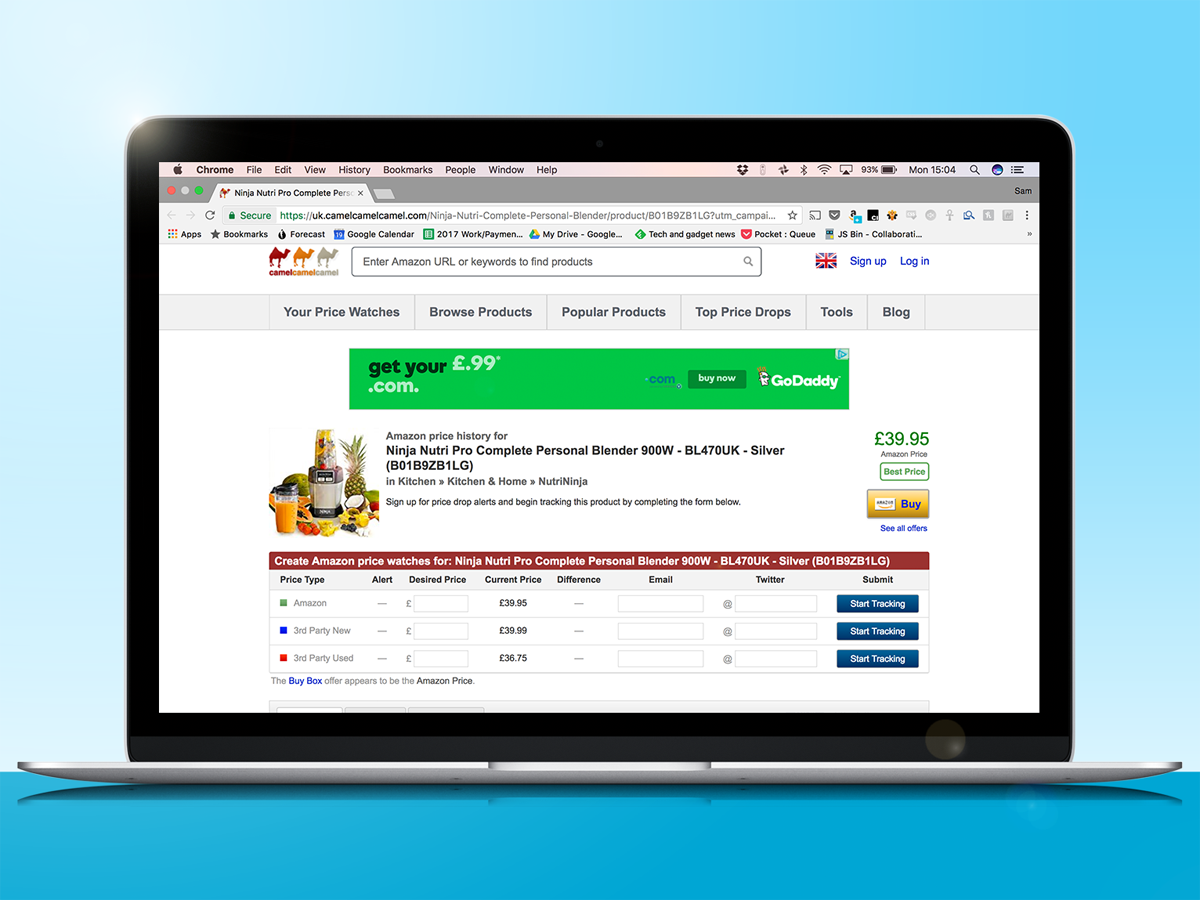
It’s a real bummer when you buy something only for the price to plummet a day or two later. Amazon used to have an informal policy whereby it’d refund you the difference (in gift card form), as long as you asked within a short period of the transaction taking place – but that now seems to have been quietly ditched, apart from in the case of TVs. Even so, it’s worth emailing customer service to enquire if such a situation arises – the worst that can happen is they say no.
7) Eurovision price contest
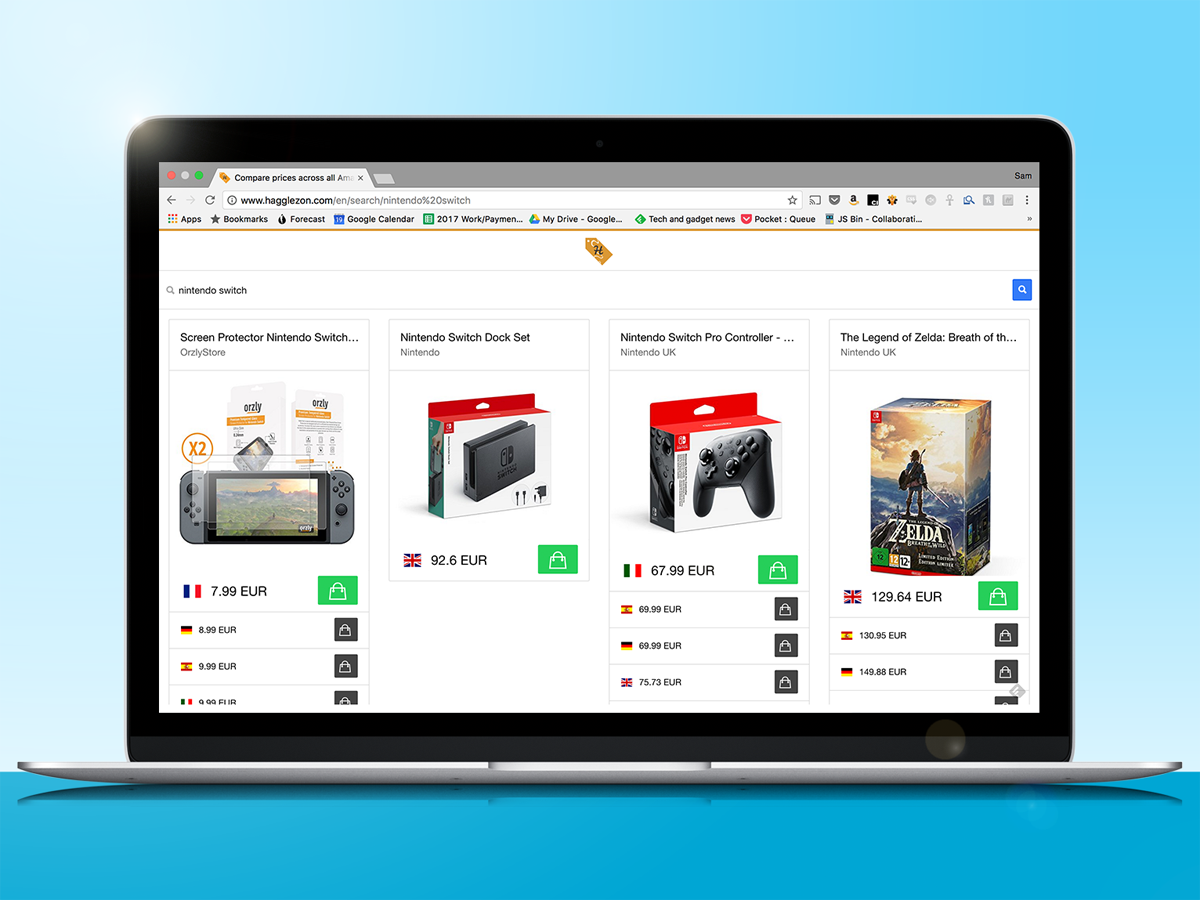
Before we bid the EU adieu, there’s a reasonable opportunity to pick up some cheaper products across Amazon’s EU sites. You can compare prices easily using tools like Curiua and Hagglezon, but note that the current weak pound means that digging up a bargain from abroad is going to be harder than it was before the referendum.
8) Subscribe and save
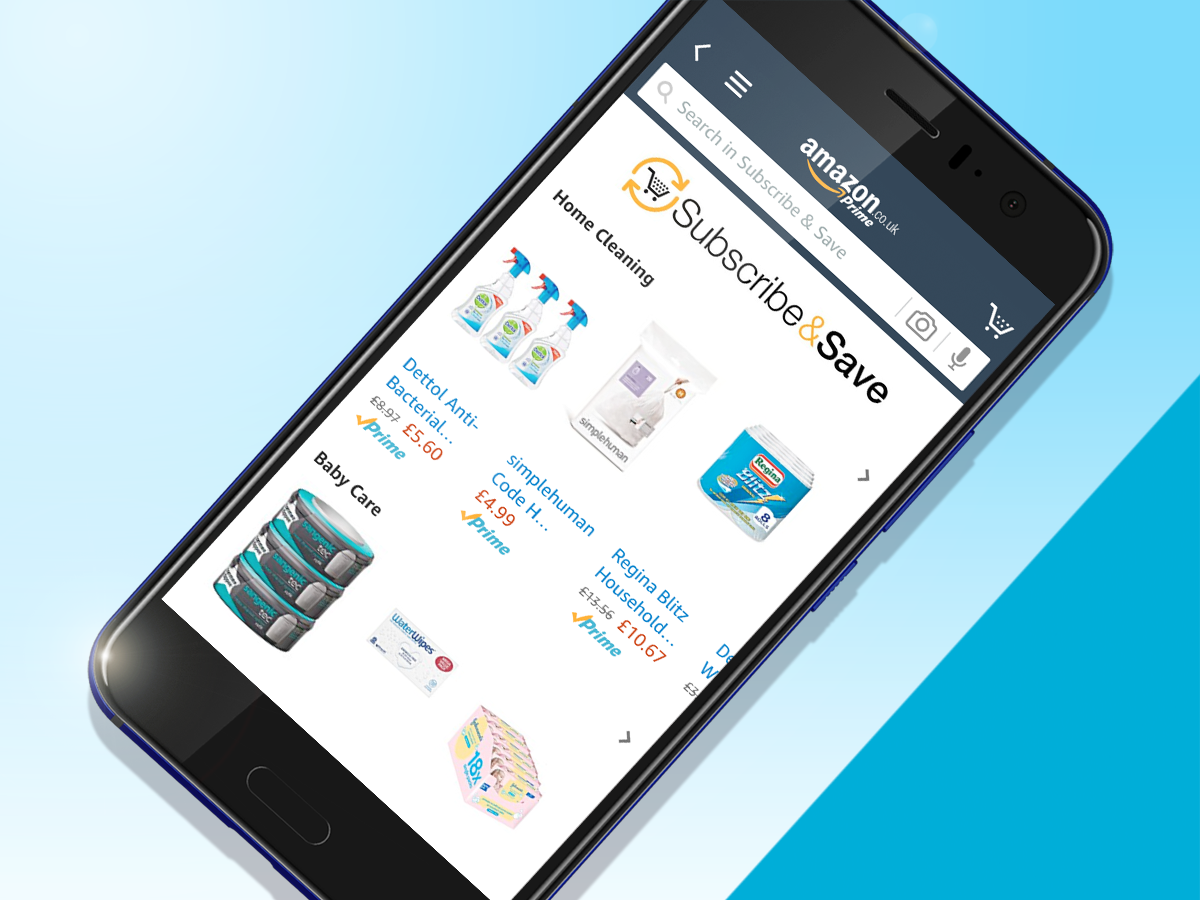
One way to save a few quid on household essentials is to use Amazon’s Subscribe & Save option. Available on thousands of products, it gives you additional savings if you receive five or more products on a single, monthly delivery date.
There’s no commitment here, so if you don’t need another nine rolls of toilet paper you can remove that from your subscription ahead of time without a penalty, or set the frequency to every two or three months instead.
Also, if you’re also a Prime user, you can get a further 20 percent off nappies when you Subscribe & Save through Amazon Family.
Prime pointers…
9) Work out if Prime’s worth it
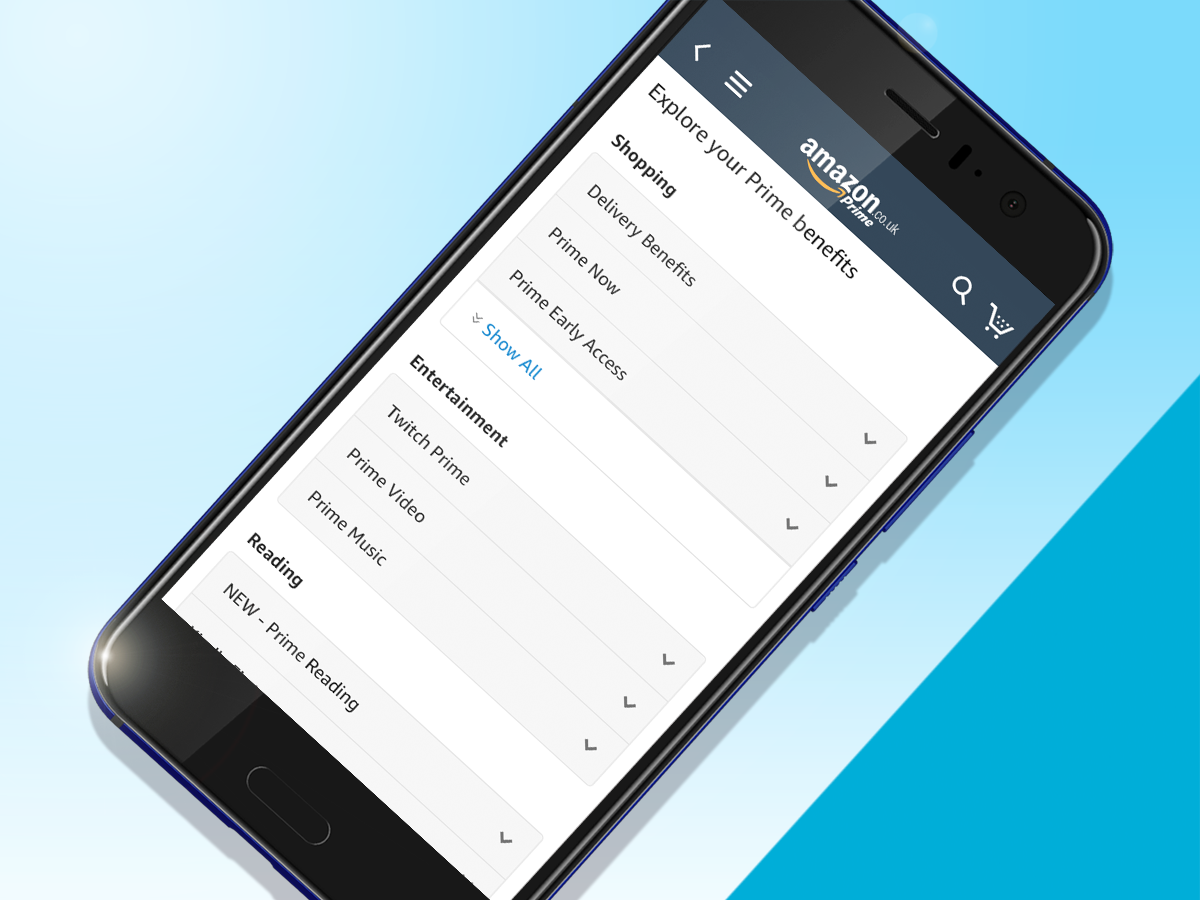
Umming and ahing over forking out £79 for an annual Amazon Prime membership? Even if you do a lot of shopping on the site, the free one-day (same day in some places) delivery might not be a huge money saver – after all, Amazon offers free (albeit not one-day) shipping on orders of £20 or more.
For us, it’s the additional benefits and not just the fast shipping that make Prime worth considering: Prime Video (which is excellent), Amazon Music streaming, Twitch Prime access, online photo storage, access to free Kindle books, and other money-saving Amazon bits and pieces. We’d advise you to read through all the benefits and think long and hard before you commit.
10) Student? Get Prime for peanuts!

If you’re currently in UK higher education (and can prove it to Amazon), you can sign up for Amazon Student, a service with many of the benefits of full Prime membership at a fraction of the price.
For starters, you get the service – which features free one-day delivery, discounts on textbooks and other student-related products, access to Prime Video and Prime Music, and unlimited cloud photo storage – for six months entirely free-of-charge. If you don’t cancel it before the trial ends, it’ll then flip to a regular annual subscription of £39 (which is still £40 a year less than regular Prime).
11) Don’t miss out on free reading material…

Prime Reading is a brand new addition to the Prime benefits line-up, bringing a rotating roster of free reading material to members.
The thousands-strong library includes books (including big names like Harry Potter and Slaughterhouse Five), graphic novels and magazines. Prime members can “borrow” up to 10 items at once, accessing them via Kindle devices or iOS/Android tablets and smartphones.
12) …Or “free” music downloads
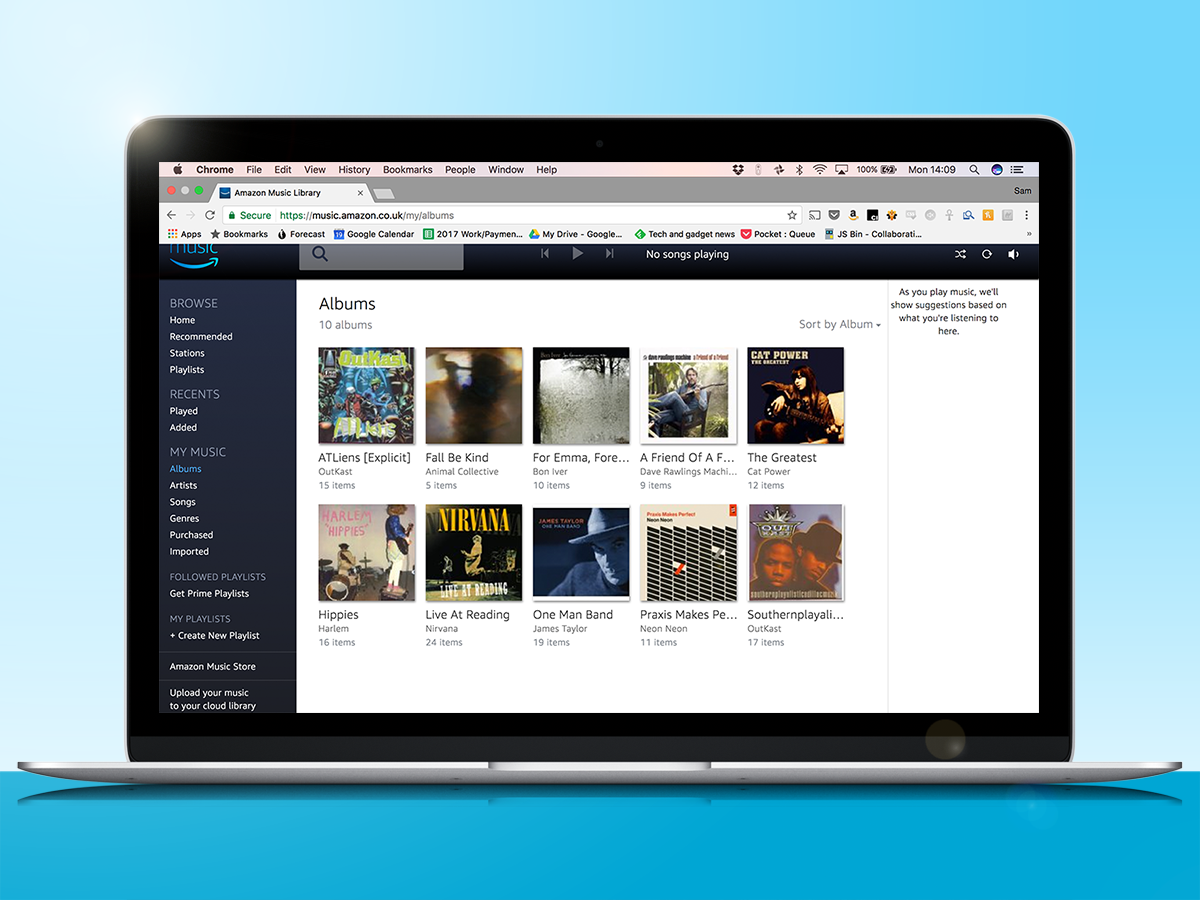
Bought any CDs or LPs on Amazon in the past decade or so? If you have a Prime account, click here to check if you can download MP3 versions for free. We tried it and were surprised to find well over 100 tracks that we could download, based off a bunch of albums we’d forgotten buying. Useful if you’ve lost your original physical albums – or given them to someone else…
13) Pantry’s on fire
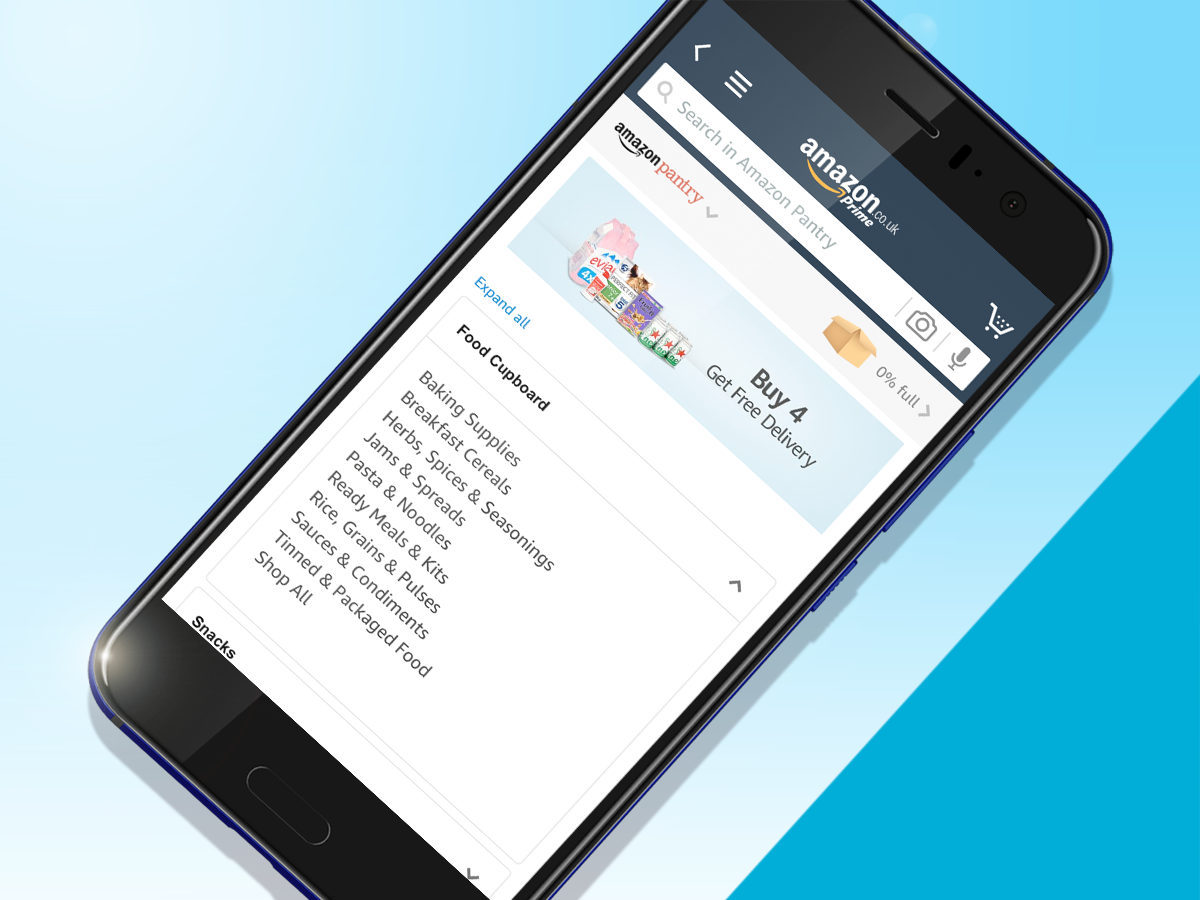
Exclusive to Prime members, Amazon Pantry is a way of receiving large boxes full of everyday essentials (household products and dry/canned/bottled groceries, mainly) at a low cost. It’s a good alternative to online shopping through your supermarket.
14) Deliver-who?
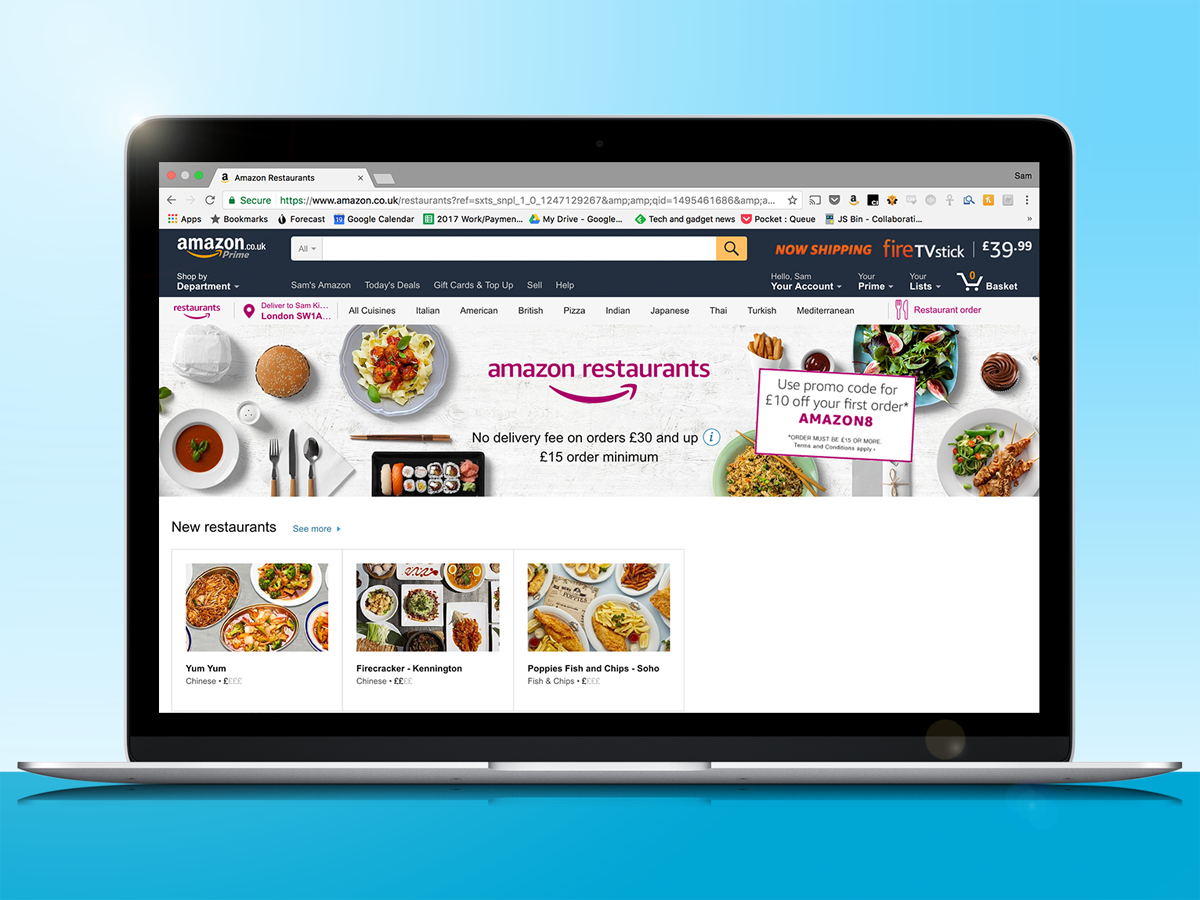
Listen up, Prime subscribers with a rumbling tummy. Amazon now has its very own answer to Deliveroo or Uber Eats in the form of Amazon Restaurants: a service whereby you order food from nearby restaurants (with a bent towards good quality establishments) and have it whisked to your door within the hour. Use the code AMAZON8 at checkout to get £8 off your first order.
15) In no rush? Get free money
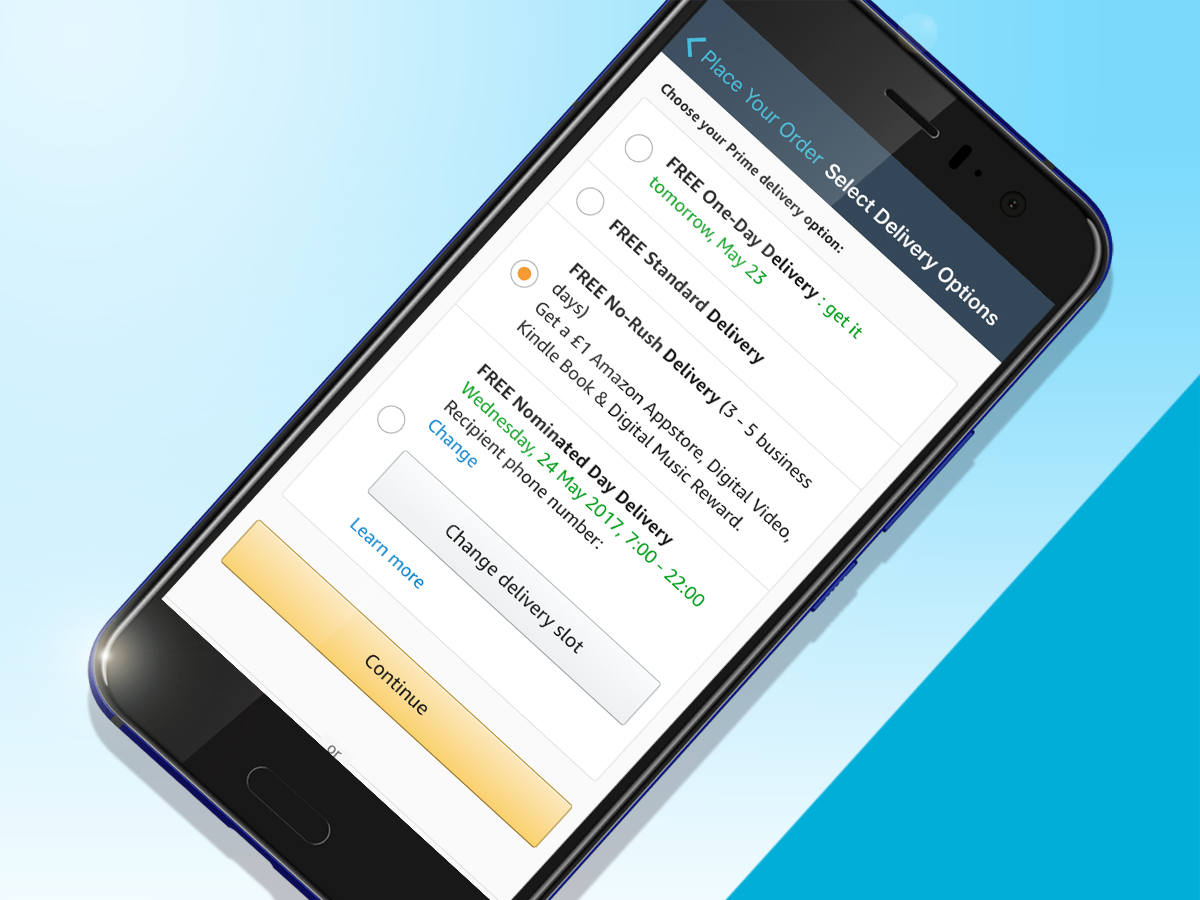
One of Prime’s better benefits is the chance to get free money to spend on Kindle books, Amazon Music and Amazon Video. Select “No rush” shipping instead of the same day/one-day option at the checkout and Amazon will give you £1 credit towards your next Kindle, Amazon Music or Amazon Video purchase (NB: orders need to be over £3 to give you the benefit, so you can split orders to maximise your credit rewards).
General tips…
16) Unmask fake reviews
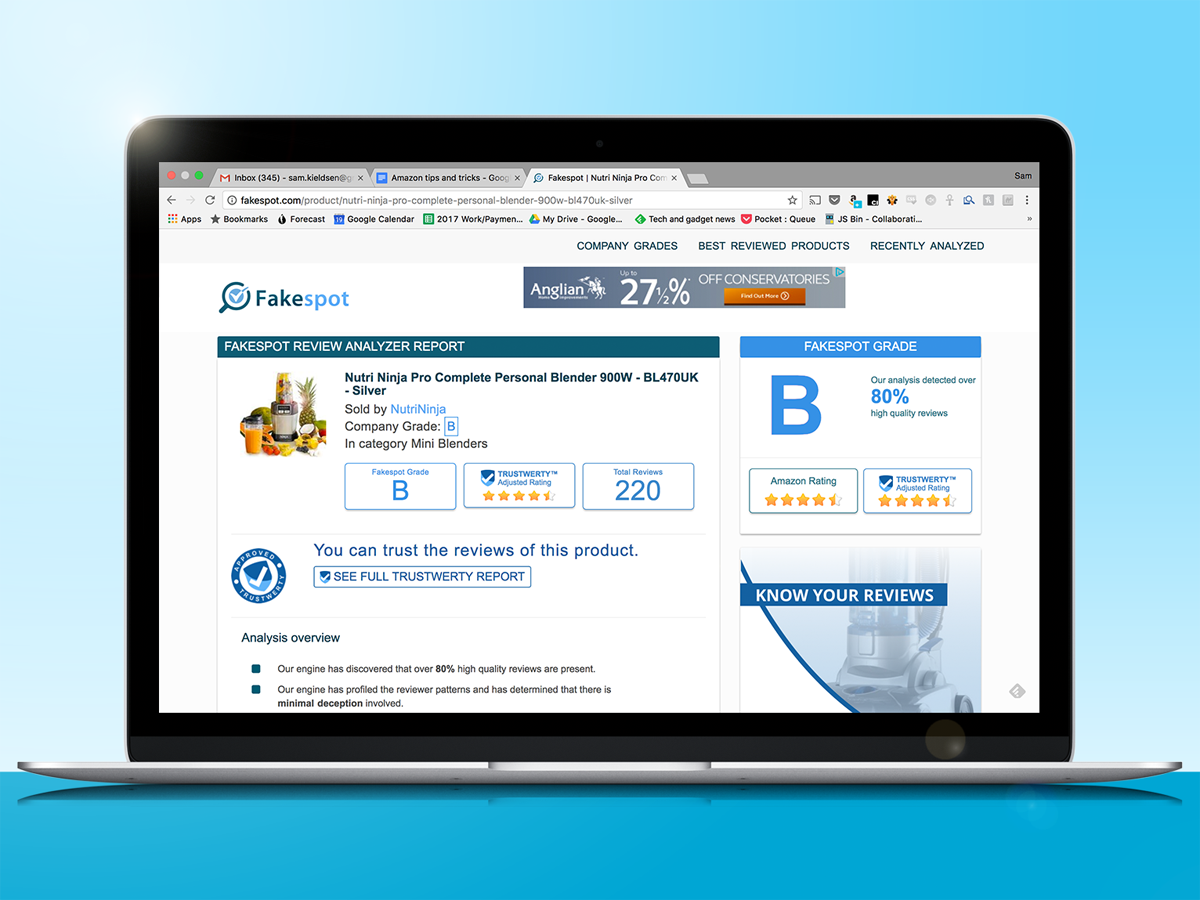
Amazon’s user-written reviews are generally an asset, giving prospective buyers a sense of what to expect from a product they may purchase. However, it’s also possible for the maker of a product to flood its page with fake positive reviews in an attempt to hoodwink you into spending your money on shoddy goods.
Enter product pages into online tool Fakespot to identify these rotters.
17) Reward yourself
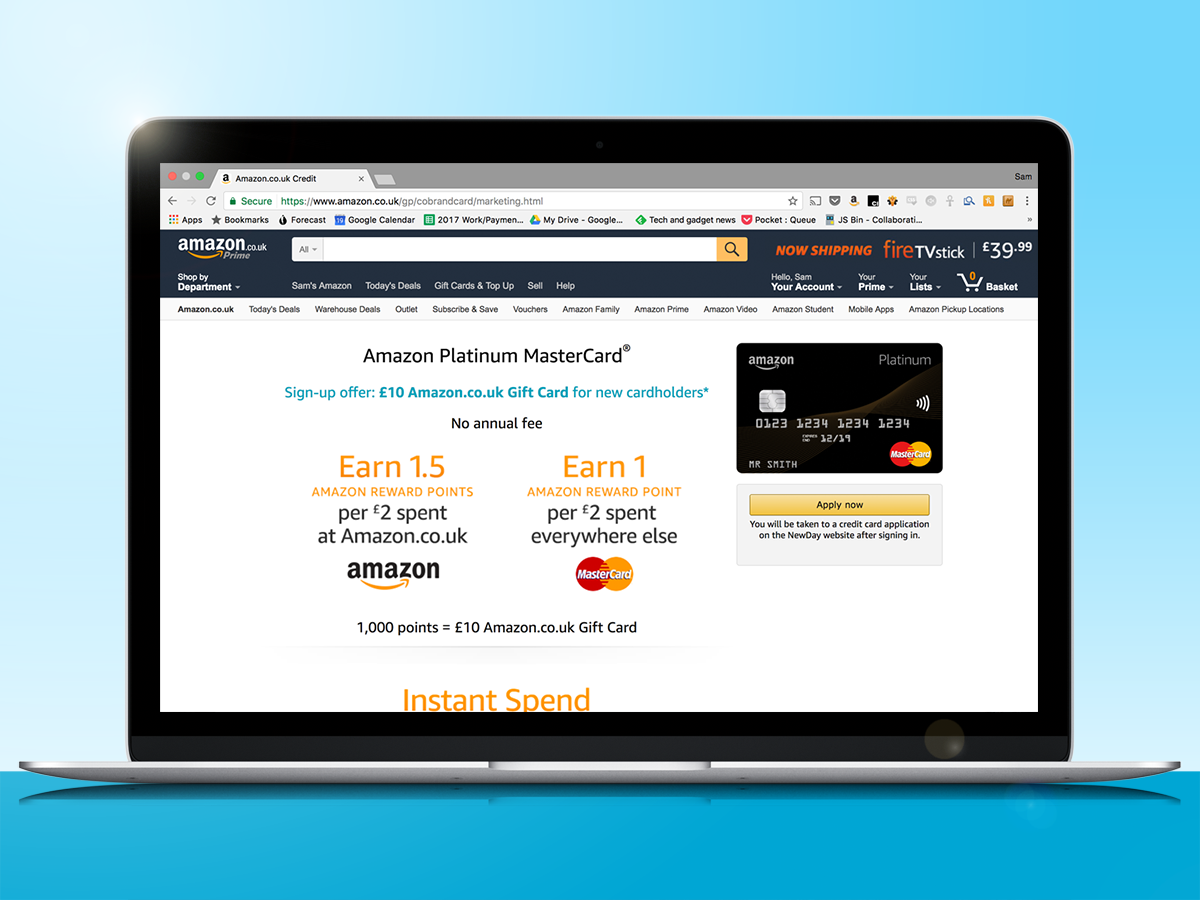
Need a new credit card and want to make some Amazon savings along the way? Apply for the Amazon Platinum MasterCard: you’ll get a £10 voucher for starters, and then Amazon reward points when you use the card (1.5 points for every £2 spent on Amazon, 1 point for every £2 spent elsewhere); each 1000 reward points you accrue will get you another £10 Amazon voucher.
18) Make a wish (list)
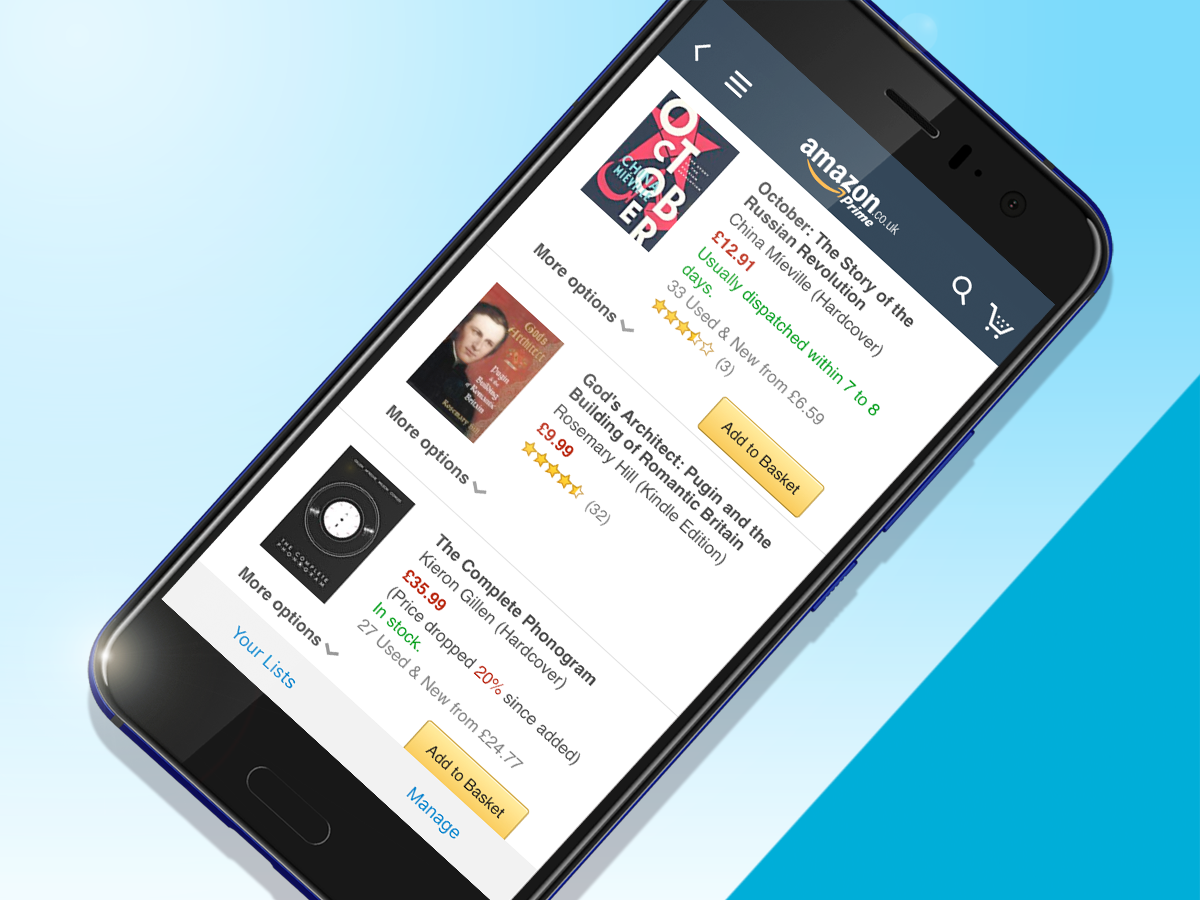
Save products you want but can’t afford right now on a Wish List. If these are kept to the default “Public” setting, friends and family will be able to browse them – if you’re lucky, maybe they’ll buy you something from your as a gift? You can do the same for them if you’re feeling generous, of course.
Wish Lists (and you can make multiple lists if you want) are also a great way to keep prospective purposes organised.
19) Amazon vs Amazon Marketplace
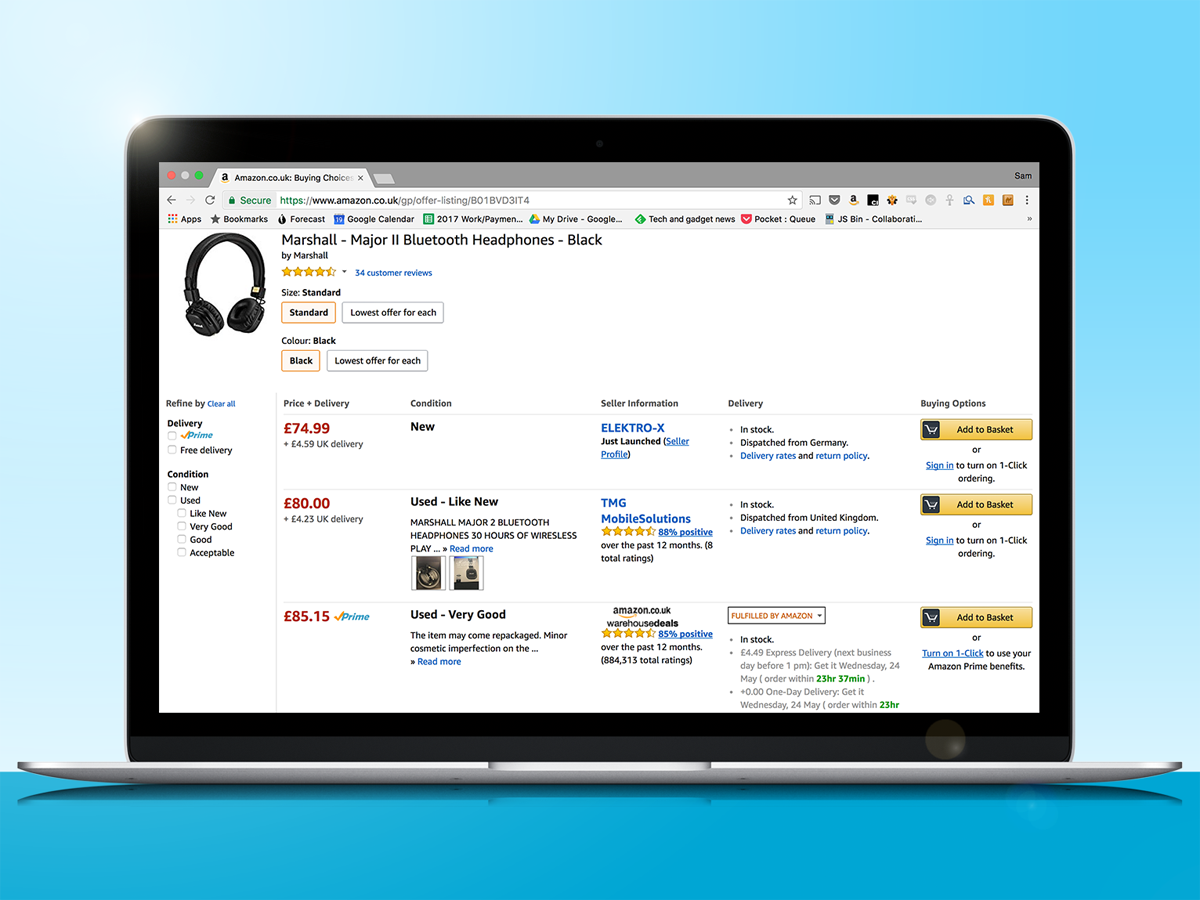
It pays to know the difference between the “normal” Amazon online store and Amazon Marketplace. The latter is an e-commerce platform where third-party sellers can offer their wares alongside Amazon’s own fixed-price goods, and in some cases use Amazon’s delivery service to fulfil orders.
While it means you might get a price that’s cheaper than Amazon’s own, it also means that Marketplace items are not always subject to Amazon’s shipping pricing scheme, or its customer service guarantee. Bear that in mind before buying.
20) The cheapest way to get free shipping

For non-Prime members, Amazon offers free Super Saver Delivering shipping on orders totalling £20 or more. That can be a mite irritating if you’re buying a product that costs £19.12, so check out this tool, which suggests items that’ll bump your basket to just the right amount.



